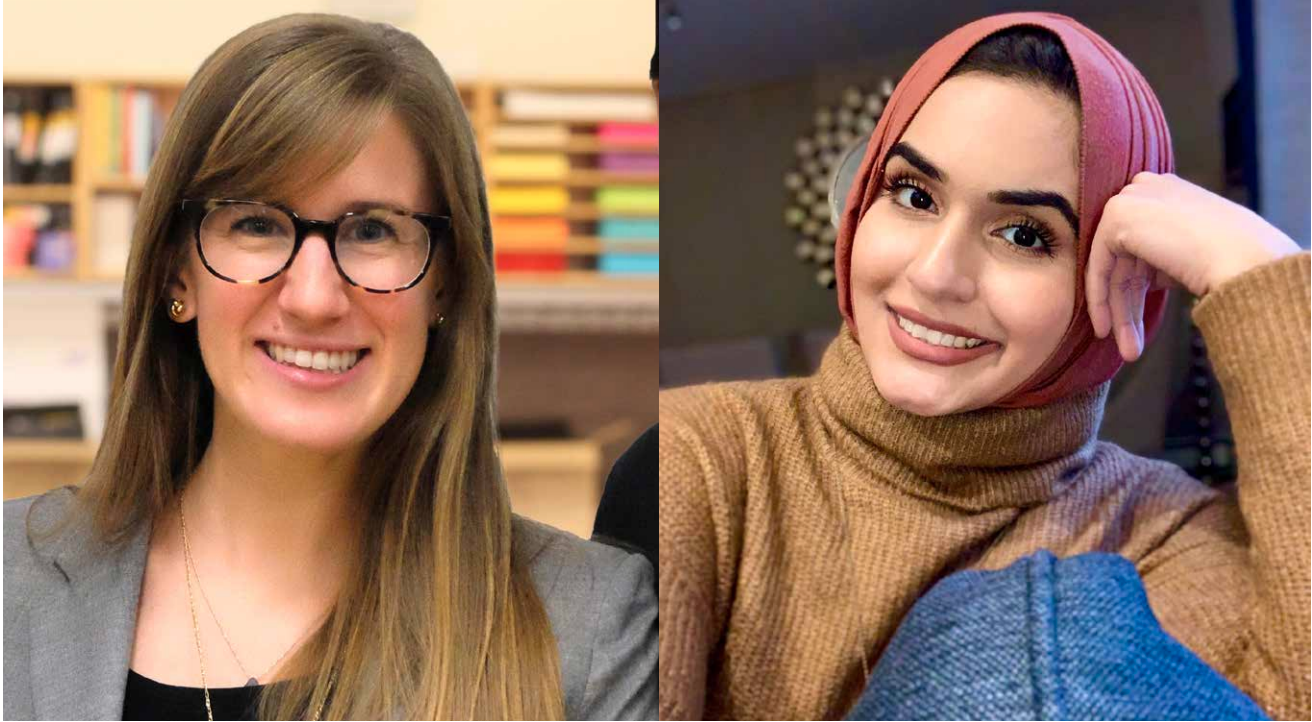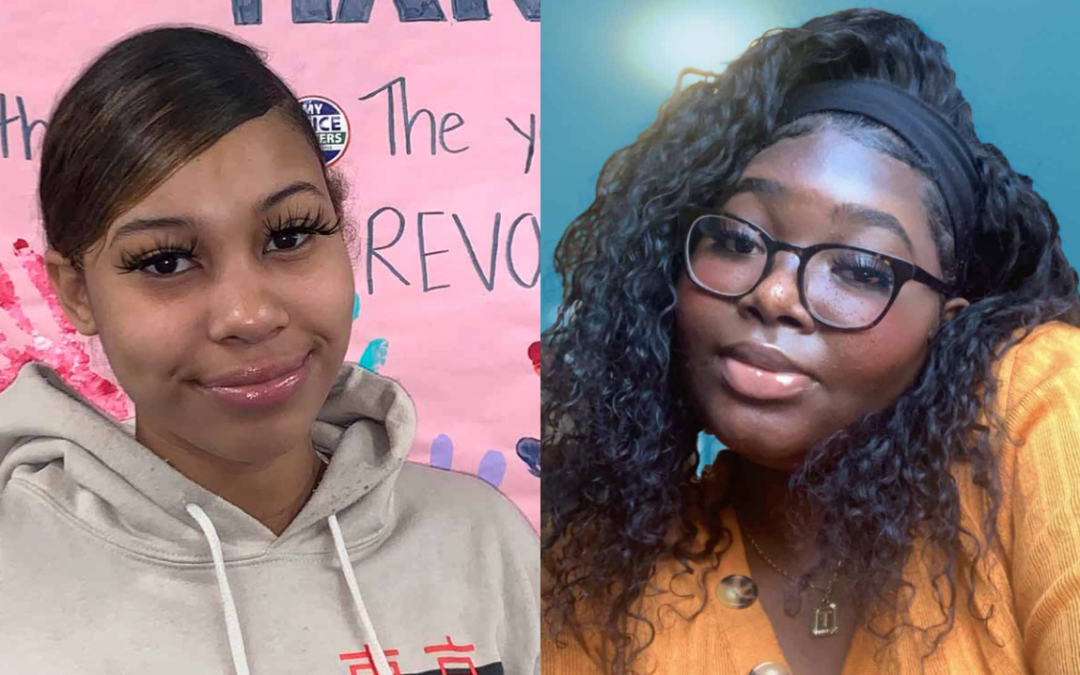“Our education system is not perfect. It’s a work in progress, and I appreciate Eskolta for acknowledging that and our schools for acknowledging that and making it better, and taking the time, because this work is not easy.”
Landmark High School alum Titilayo Aluko hopes to one day work for the American Civil Liberties Union and is considering a career in law. Student Dynasti Rios is interested in nursing, anesthesiology, and art. Chris Holguin is figuring out what he’s most passionate about—but he already knows that he wants students to learn more real-world skills in the classroom that they can then apply to promising careers.
Landmark scholars have big dreams, but they also know students face challenges in our school system, from graduation disparities to implicit biases. When a group of teachers formed Landmark’s Equity and Curriculum team, five students including Titilayo, Dynasti, and Chris joined the team as partners in building a school that better supports students.
In 2020, the team decided to focus their participation in the Eskolta Network on understanding some troubling data they had gathered showing disparities around graduation rates. For the initial phase of the project—what Eskolta calls the Familiarize phase—the team wanted to hear directly from students about their lived experiences in school that might be contributing to this issue.
“Our goal, quantitatively, is changing the data that started our work. We want to lower those alarming numbers—ones like boys of color ‘not doing well in school’ based on the measurements we have in place,” teacher Houdda Balouch said. They were curious how the curriculum might be centering whiteness and what they could do to change that.

Eskolta School Research and Design Partner, Zoe Roben, was there to serve as Landmark’s partner as the team pursued these questions. Zoe met with Houdda, the team lead, once a month to plan meeting agendas, bringing elements of design thinking to guide the team’s inquiry.
“Zoe gave us a number of easy ways to collect qualitative data and had a lot of great ideas for us,” teacher Shannon Guglielmo shared. “We needed more information about strategies, and Eskolta was there to help.”
With Zoe’s support, the team launched a series of six student-led focus groups corresponding to different racial identities in order to offer a safe space for students to share their thoughts and experiences. Landmark teachers participated in their own focus groups as well. Titilayo, Dynasti, Chris, and other students helped conduct research, from writing interview questions, to facilitating the focus groups, to reviewing and analyzing the data.
“Our education system is not perfect. It’s a work in progress, and I appreciate Eskolta for acknowledging that and our schools for acknowledging that and making it better, and taking the time, because this work is not easy,” Titilayo shared.
Through the focus groups, the team learned that students were hesitant to ask for help because it made them feel vulnerable and they felt a perfectionist pressure in the learning culture. “It’s important for students to trust that teachers are going to help them,” noted Chris. These findings are directly informing professional development at Landmark and the team is designing new feedback practices to move towards a culture that celebrates support and revision in service of deeper, more meaningful learning.
Dynasti expressed her hopes for the work Landmark’s student-teacher team is doing—including its potential to inspire change for others outside of her immediate school community: “I hope that it leads to less racial bias… I hope that more schools become more aware of what issues are going on—and if those issues are present in the classroom, then how could we resolve it?”

